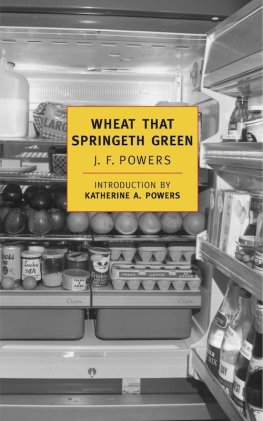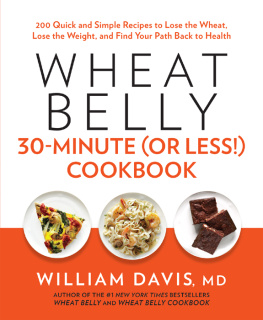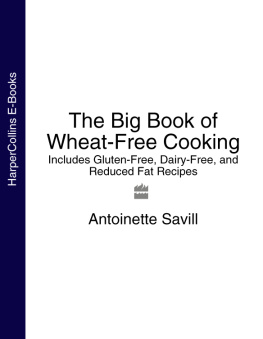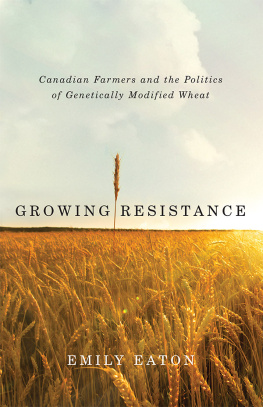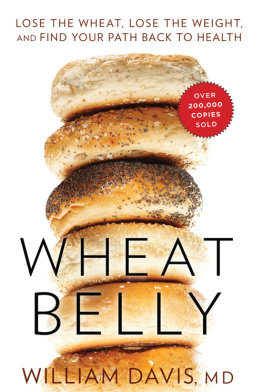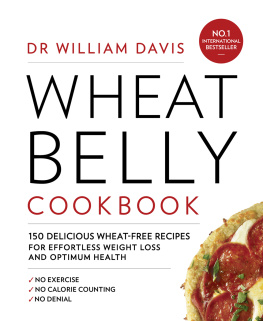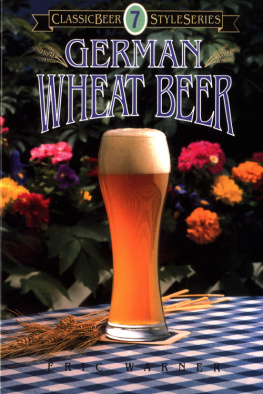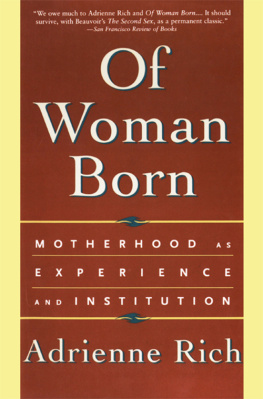Georgina Binnie-Clark - Wheat and Woman
Here you can read online Georgina Binnie-Clark - Wheat and Woman full text of the book (entire story) in english for free. Download pdf and epub, get meaning, cover and reviews about this ebook. year: 2015, publisher: University of Toronto Press, genre: Romance novel. Description of the work, (preface) as well as reviews are available. Best literature library LitArk.com created for fans of good reading and offers a wide selection of genres:
Romance novel
Science fiction
Adventure
Detective
Science
History
Home and family
Prose
Art
Politics
Computer
Non-fiction
Religion
Business
Children
Humor
Choose a favorite category and find really read worthwhile books. Enjoy immersion in the world of imagination, feel the emotions of the characters or learn something new for yourself, make an fascinating discovery.

- Book:Wheat and Woman
- Author:
- Publisher:University of Toronto Press
- Genre:
- Year:2015
- Rating:4 / 5
- Favourites:Add to favourites
- Your mark:
- 80
- 1
- 2
- 3
- 4
- 5
Wheat and Woman: summary, description and annotation
We offer to read an annotation, description, summary or preface (depends on what the author of the book "Wheat and Woman" wrote himself). If you haven't found the necessary information about the book — write in the comments, we will try to find it.
Wheat and Woman is a fascinating record of a gifted and determined womans experience in prairie farming and a unique document in Canadian social history.
Wheat and Woman — read online for free the complete book (whole text) full work
Below is the text of the book, divided by pages. System saving the place of the last page read, allows you to conveniently read the book "Wheat and Woman" online for free, without having to search again every time where you left off. Put a bookmark, and you can go to the page where you finished reading at any time.
Font size:
Interval:
Bookmark:
WHEAT AND WOMAN
An established writer before she came to Canada, Georgina Binnie-Clark (18721947) bought land near Fort QuAppelle, Saskatchewan, in 1905. She had no experience with agriculture, and her family members thought she was mad, but she persevered. Profoundly influenced by the ideologies of the British Empire, she was motivated by the belief that she was helping the mother country to rear the daughter nation of Canada through her own farming efforts and through her promotion of farming as an occupation for British women. She. believed that marriage need not be the sole destination for women, that there were alternatives such as agriculture which could permit women to support themselves and have a rewarding profession.
Originally published in 1914, Wheat and Woman is an autobiographical account of Georgina Binnie-Clarks first three years of farming the prairies her mistakes and misfortunes but also the kindness of neighbours, her love for the prairies, and her remarkable determination. As well, it documents the inequities of the land laws of western Canada, which permitted only a handful of women to obtain the homestead grant available to males. While Binnie-Clarks brother could acquire a homestead for free, she had to purchase her land. For this reason, there were few women farmers in western Canada, and Wheat and Woman is a rare document, being the only book-length, published account of a woman farmer in the region.
This new reprint includes an introduction by Susan Jackel, written for a 1979 edition of the text, as well as a new scholarly introduction by historian Sarah A. Carter, who received a Killam Fellowship for the study of Great Plains women of Canada and the United States. Wheat and Woman is a fascinating, lively, and often humorous account of a gifted and determined womans experience in prairie farming, and it is a unique document in Canadian social history.
SARAH A. CARTER is Henry Marshall Tory Chair in the Department of History and Classics and the Faculty of Native Studies at the University of Alberta.
GEORGINA BINNIE-CLARK
WITH A NEW INTRODUCTION BY SARAH A. CARTER

First published in Toronto by Bell and Cockburn, 1914
University of Toronto Press Incorporated 1979
Reprinted with a new Introduction 2007
Introduction Sarah A. Carter 2007
Toronto Buffalo London
Printed in Canada
ISBN-10: 0-8020-3813-1
ISBN-13: 978-0-8020-3813-5

Printed on acid-free paper
Library and Archives Canada Cataloguing in Publication
Binnie-Clark, Georgina, 18711955.
Wheat and woman / Georgina Binnie-Clark; with a new introduction by Sarah Carter.
Includes bibliographical references.
ISBN-13: 978-0-8020-3813-5
ISBN-10: 0-8020-3813-1
1. Binnie-Clark, Georgina, 18711955. 2. Women farmers Saskatchewan Fort QuAppelle Biography. 3. Frontier and pioneer life Saskatchewan Fort QuAppelle. I. Carter, Sarah, 1954 II. Title.
S417.B545A3 2006 630.92 C2006-904556-9
University of Toronto Press acknowledges the financial assistance to its publishing program of the Canada Council for the Arts and the Ontario Arts Council.
University of Toronto Press acknowledges the financial support for its publishing activities of the Government of Canada through the Book Publishing Industry Development Program (BPIDP).
SARAH A. CARTER
It was very fitting that five horses should be grazing contentedly on Georgina Binnie-Clarks farm near Fort QuAppelle, Saskatchewan, when I visited on a sunny harvest day in September 2005, one hundred years after she purchased this land.
Georgina Binnie-Clark was a thirty-three-year-old journalist with no farming experience and, according to her own account, no particular intentions of becoming a farmer when she bought her improved farm of 320 acres, despite the advice of family members who told her it was the maddest thing which you have ever done.
As it is one hundred years since Binnie-Clark purchased her farm and twenty-five years since the second edition of Wheat and Woman, with an introduction by Susan Jackel, it is time to introduce this book and its author to a new generation and to reconsider both in the light of new approaches to the past and new research on women in Canada, in the British Empire, and on the Great Plains of North America. The introduction to the 2006 reprint builds on, and should be read in conjunction with, Jackels 1979 introduction. It is unfortunate that Binnie-Clark has Women such as Binnie-Clark deserve attention, and not because we need female additions to heroic tales of rugged individuals in the narrative of western Canada. Her life raises significant questions and sheds light on many dimensions of the early twentieth-century Canadian West, particularly the privileges, limitations, and complexities of race and gender categories. She can also assist in opening conversations between historians of western women in the United States and Canada, and with international, scholars who are adopting transnational approaches to gender, race, and empire. As a journalist, travel writer, farmer, and enthusiastic promoter of the British Empire and the opportunities for women in the British settler colonies, Binnie-Clark belongs in these conversations and in these studies. The purpose of my introduction is to draw attention to her and to situate her in the context of some of the new research that has emerged since the second edition.
As Susan Jackel found, there are many puzzles and gaps in the Binnie-Clark story. She was clearly well educated, and she must have been accustomed to servants, as she could not cook when she arrived in Canada, and although she was an experienced rider, she was not able to harness her own horse. (Initially she had to call on her neighbours whenever this was required!)
It is important to emphasize, as Jackel pointed out, that it is not clear whether the information provided in Binnie-Clarks books about herself, her family, and her farming is entirely reliable. She changed the names of her family members, her neighbours, and Binnie-Clarks sister, called Hilaria, was probably Ethel, but if so, it is likely not the case that she hated the rural prairies and farming in the way Binnie-Clark describes, since Ethel became a much more permanent resident of the farm than her sister. But for her narrative, it is important to develop Hilarias distaste for farm life on the prairies, to form a contrast to Georginas growing fascination, and through Hilarias efforts to find a job as a nurse and domestic servant, readers learn about the limited options for single women in Canada.
There remain significant gaps in important aspects of Binnie-Clarks life, such as where she was educated and where and how she established a reputation as a journalist before her arrival in Canada in 1905. As Susan Jackel discovered, it is also not clear precisely when and for how many years she was resident on her Saskatchewan farm.
During the First World War, Binnie-Clark was one of seven agriculturalists appointed by the Ministry of Labour to organize the work of women on the land, and she was assigned the Yorkshire and Lincolnshire districts. Just how she juggled this business and her farm in Saskatchewan is one of many puzzles about Georgina Binnie-Clark.
Binnie-Clarks first allegiance was to the British Empire. This loyalty was expressed through her writing, farming, training of young English women agriculturalists, lectures, and finally the organization of the Union Jack Farm Settlement. She counted herself among those who were fighting out the battle of our Empire with the pick and spade on unbroken soil. convinced that the empire was a force for great good in the world, and she was particularly interested in publicizing and promoting the contribution English women could make to the settler dominions.
Next pageFont size:
Interval:
Bookmark:
Similar books «Wheat and Woman»
Look at similar books to Wheat and Woman. We have selected literature similar in name and meaning in the hope of providing readers with more options to find new, interesting, not yet read works.
Discussion, reviews of the book Wheat and Woman and just readers' own opinions. Leave your comments, write what you think about the work, its meaning or the main characters. Specify what exactly you liked and what you didn't like, and why you think so.

